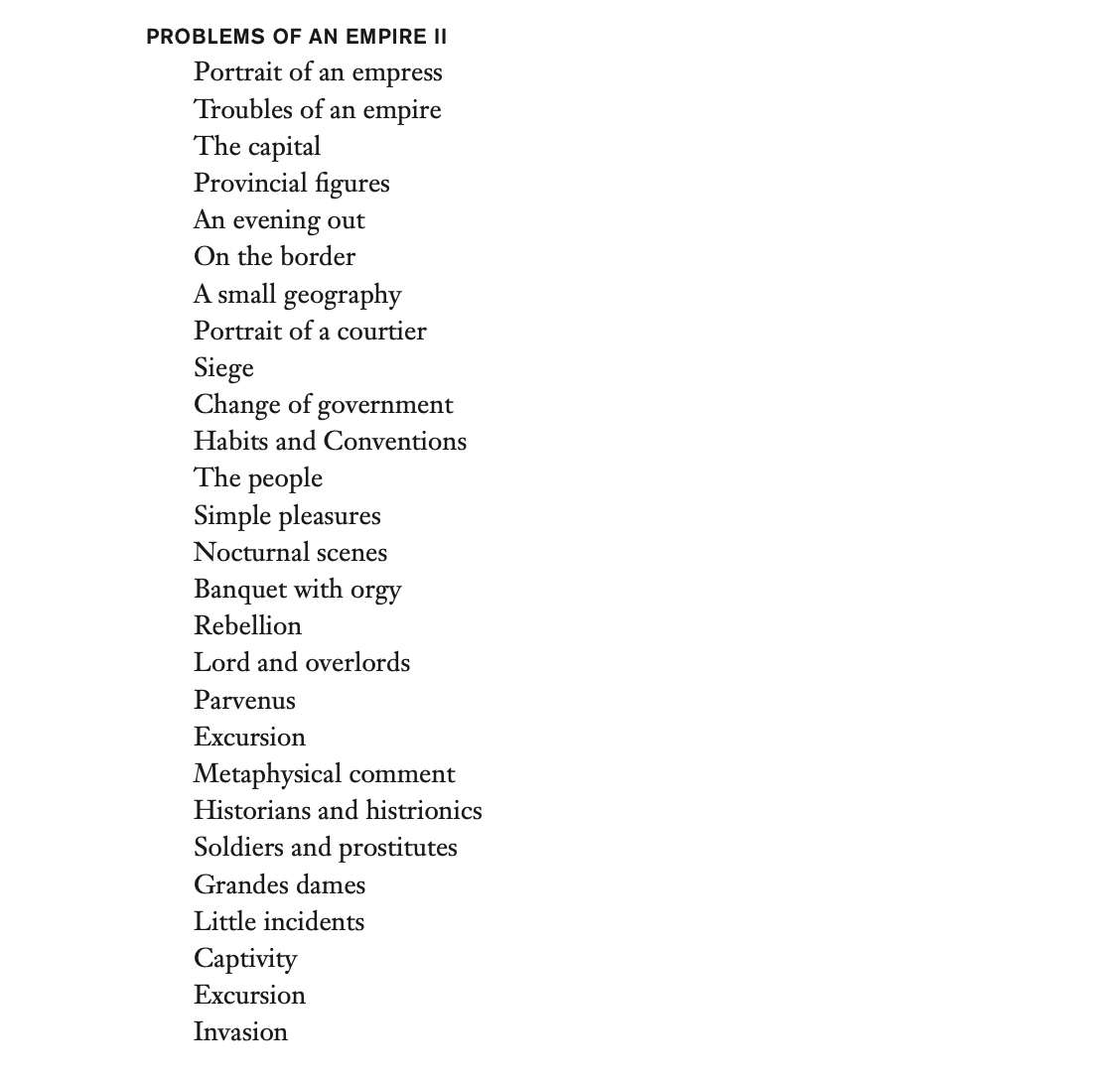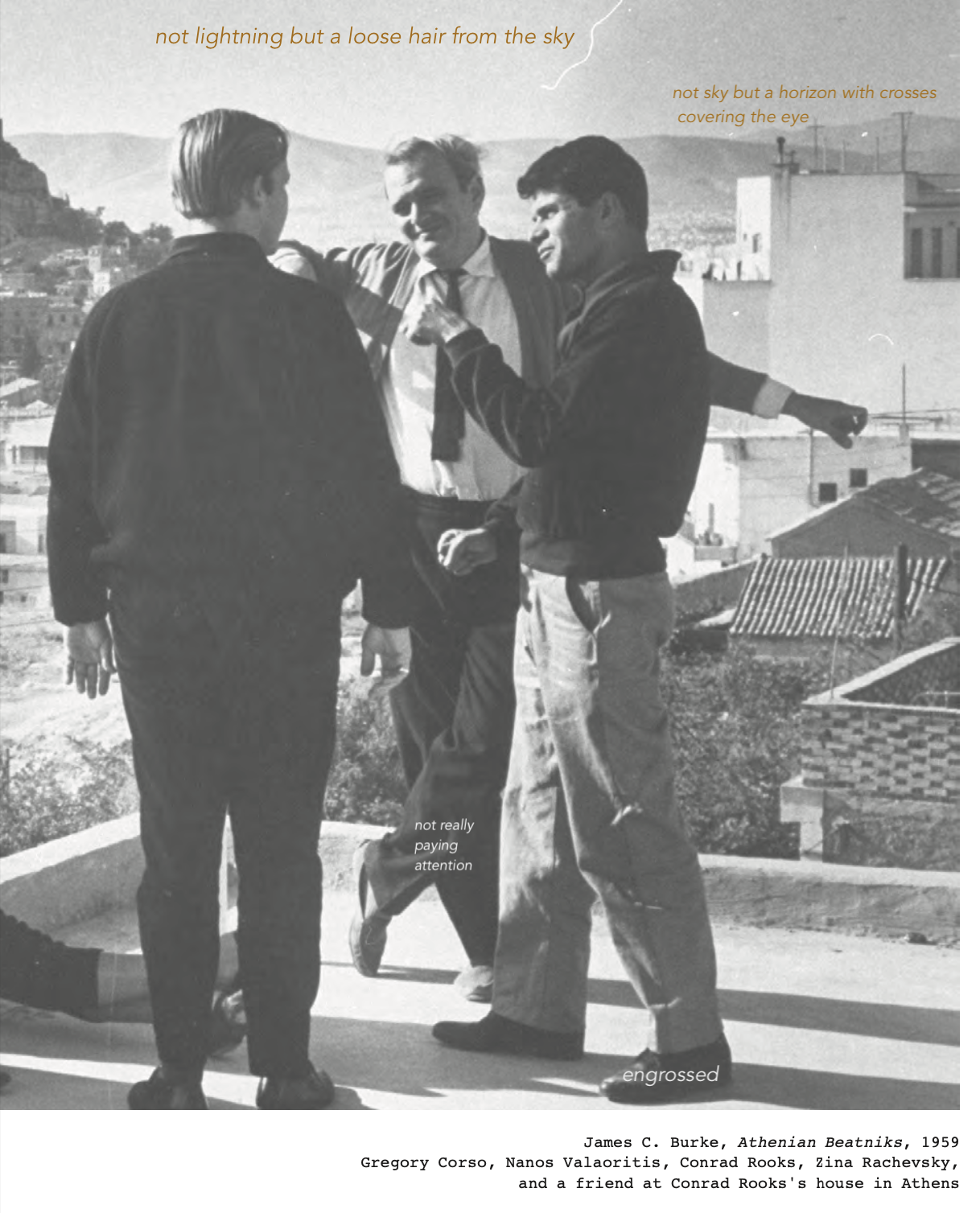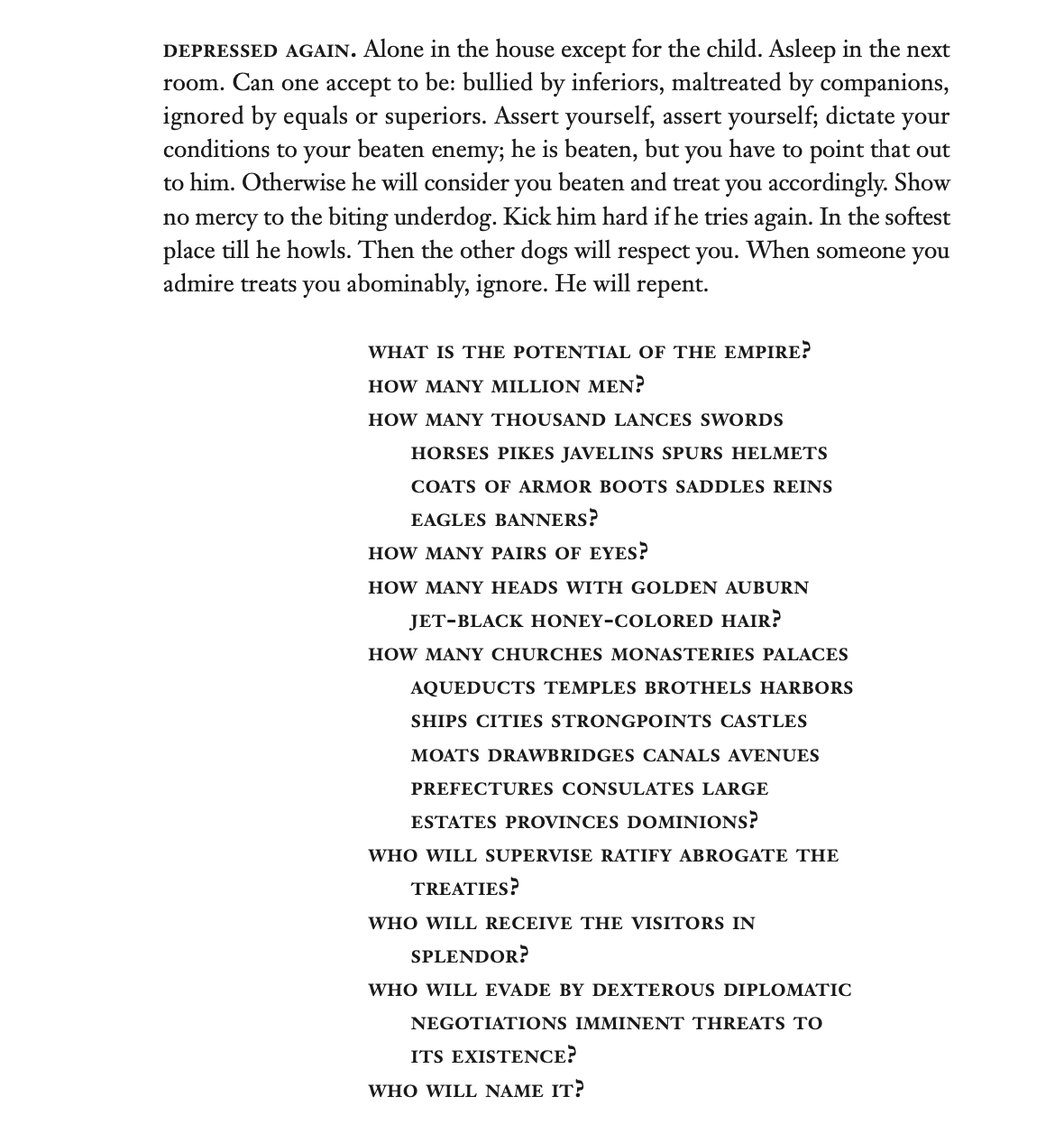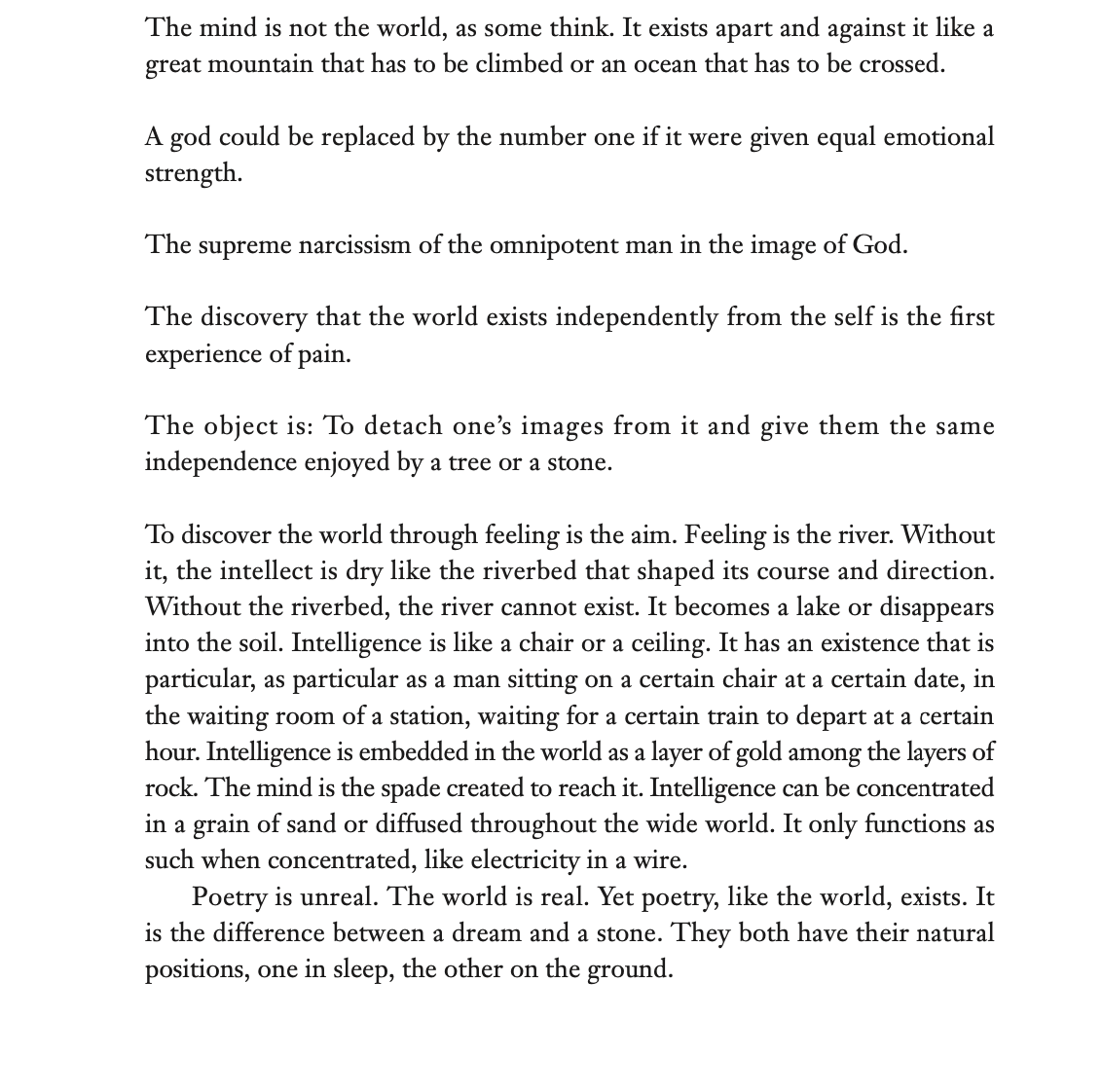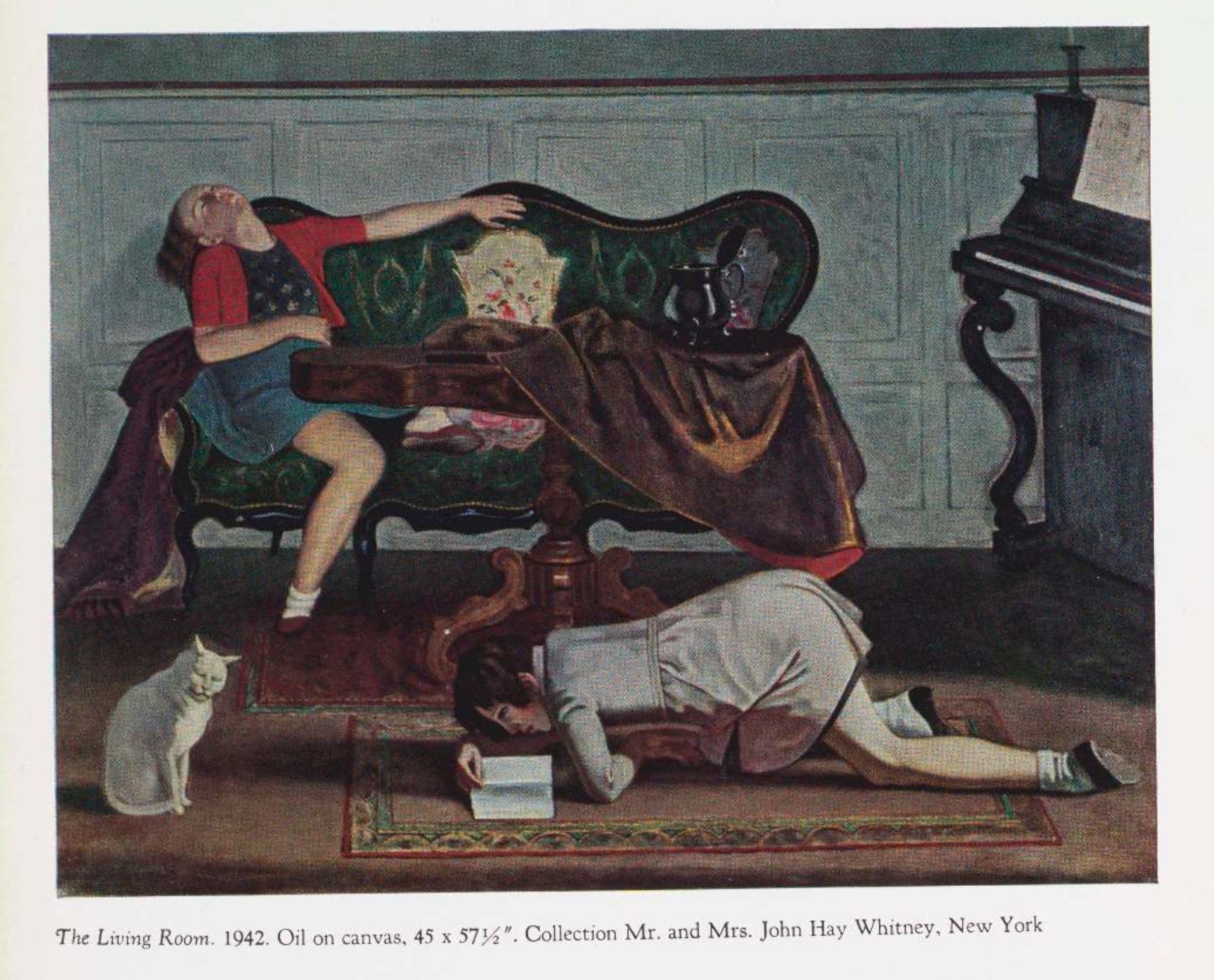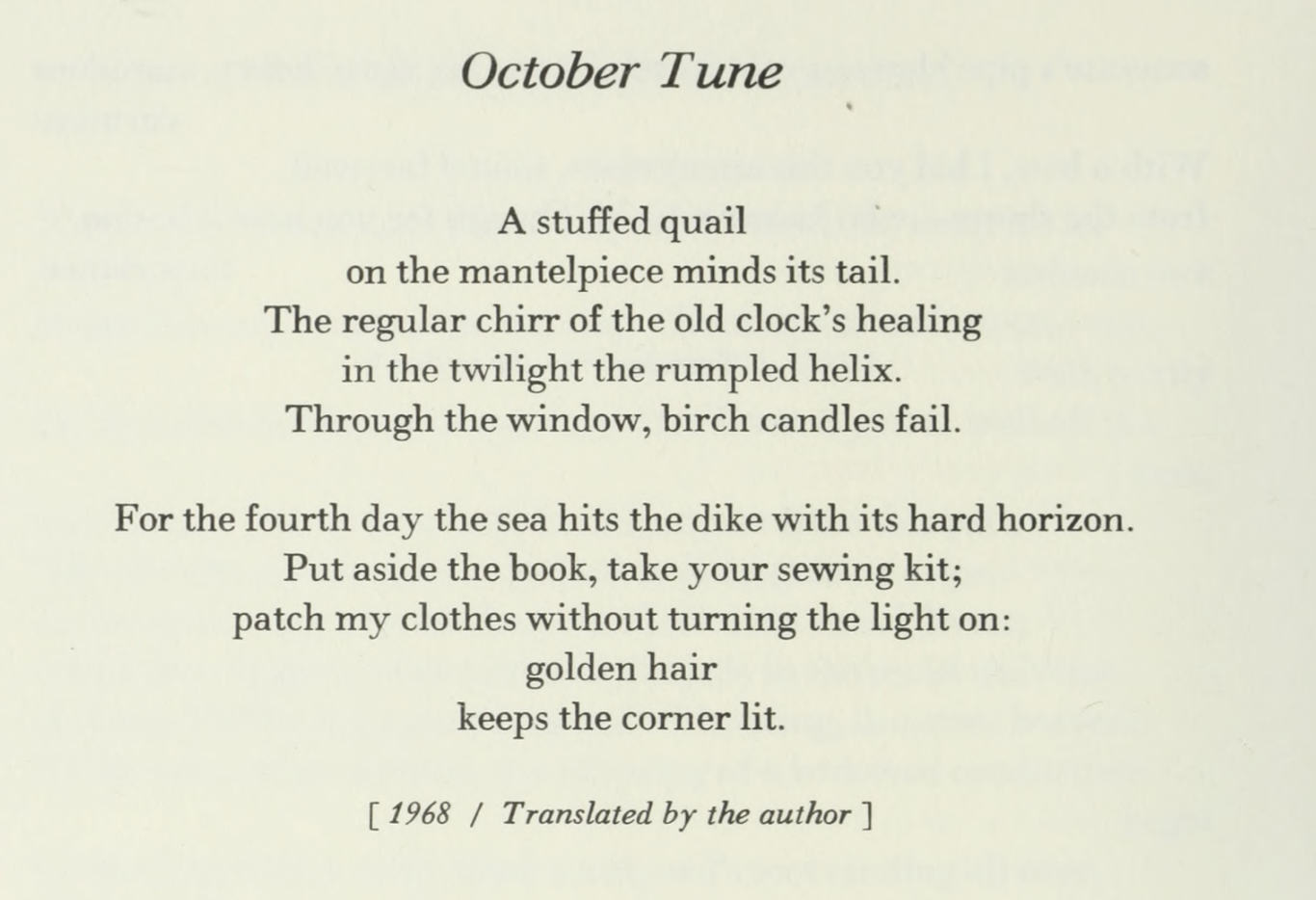We’re stuck with a certain vision of what an essay should be, when in fact its possibilities seem limitless. That’s what attracted me to it—it was this kind of unexplored territory. I do find it dreary that these essayists end up writing about themselves so much. Even if they’re taking documentary information, they add a lot of personal response to it, which seems to be what the new quote, unquote lyric essay is. I have no interest in first-person investigation. Personally, I’ve never found myself an interesting person.
– Eliot Weinberger in conversation with Srinkanth Reddy
NOTE: All of the linked excerpts below refer to Nanos Valaoritis’ “Problems of an Empire,” as published in A Public Space, No. 27.
/
In Dante’s Purgatorio XIX, 7-15, there is femmine balba, the “bubbling siren” or “stammering woman” whose presence exhibits indecency and has been read as a figure of “non-song” by critics.
/ /
“It is said that cripples, amputees, notice a prodigious development of their faculties,” wrote Francis Ponge. “So with plants: their immobility accounts for their self-perfection, their complexity, their gorgeous decorations, their lush fruits.”
/ / /
Nanos Valaoritis . . .
“A metaphysic is a means of orientation in the confusion of the world, a path on the endless expanse of the ocean’s water. An Ariadne’s thread in the twisting labyrinth.”
/ / / /
Nanos Valaoritis . . .
“A metaphysic is an imaginary line dividing an invisible territory. The division enables us to measure the territory and to determine our own position in it. A compass with which human beings are supplied from birth.”
/ / / / /
Nanos again . . .
“A metaphysic is first manifested in dreams, a mysterious language of undeciphered signs whose meaning is obscure, dictating our behavior. Then one by one the signs are unveiled to reveal the familiar forms of our experience. Then one still walks in the same forest but knows the names of the trees.”
/ / / / / /
Francis Ponge on the flora and fauna . . .
“Or rather, and even worse, nothing accidentally monstrous: despite all their efforts “to express themselves,” [the flora] only manage to repeat a million times over the same expression, the same leaf. In the spring, when tired of restraining themselves and no longer able to hold out, they let loose a flood, a vomiting of green, and think they are humming a tuneful hymn, coming out of themselves, spreading out over all of nature, embracing it— they are still only producing in thousands of copies the same note, the same word, the same leaf.
There is no way out for trees by the means of trees.”
/ / / / / / /
Dogberry to Conrade, in William Shakespeare’s Much Ado About Nothing . . .
“O that she were here to write me down an ass! But, masters, remember that I am an ass; though it be not written down, yet forget not that I am an ass. No, thou villain, thou art full of piety, as shall be proved upon thee by good witness. I am a wise fellow, and, which is more, an officer, and, which is more, a householder, and, which is more, as pretty a piece of flesh as any is in Messina, and one that knows the law, go to; and a rich fellow enough, go to; and one that hath had losses, and one that hath two gowns and every thing handsome about him. O that I had been writ down an ass!”
/ / / / / / / /
Nanos Valaoritis . . .
“Two or three days ago I saw F. Tiresias, holding in his hand the light, intricate web that is woven among the families, the glittering surface of their lighter relations to each other, the juxtaposition of their names with their qualities and reactions, creating the dazzling magic of their comic, unexpected encounters as if they were tumbling out of one another and themselves like newborn puppies, in the present the past and the future, brought into focus as F. was speaking, and compressed by the force of his poetic vision in a single, instantaneous medium. Then I saw M. as the youthful Atlas before he had shouldered on his powerful arms the full weight of the sky, bracing his as-yet unused muscles rolling about in the grass like a happy giant, or weighed down already by the mere idea of the weight that he was going to shoulder in the future. The invisible world, which he had already in his imagination assumed the responsibility of holding up.”
/ / / / / / / / /
Francis Ponge on the three shops near the Place Maubert . . .
“Brown, because brown lies between green and black on the way to carbonization, the destiny of wood still holds – though minimally – the possibility of action, meaning error, blunder . . . and every possible misunderstanding.”
*
Balthus, The Living Room (1942)
Francis Ponge, “Fauna and Flora”
Francis Ponge, “The Three Shops”
Joseph Brodsky, “October Tune” (from To Urania)
Leonard Cohen, “To A Young Nun” (from The Book of Longing)
Nanos Valaoritis, “Problems of an Empire” (A Public Space, No. 27)
The Durutti Column, “Requiem Again” (2024 Remaster)
Yo La Tengo, “Our Way to Fall”

